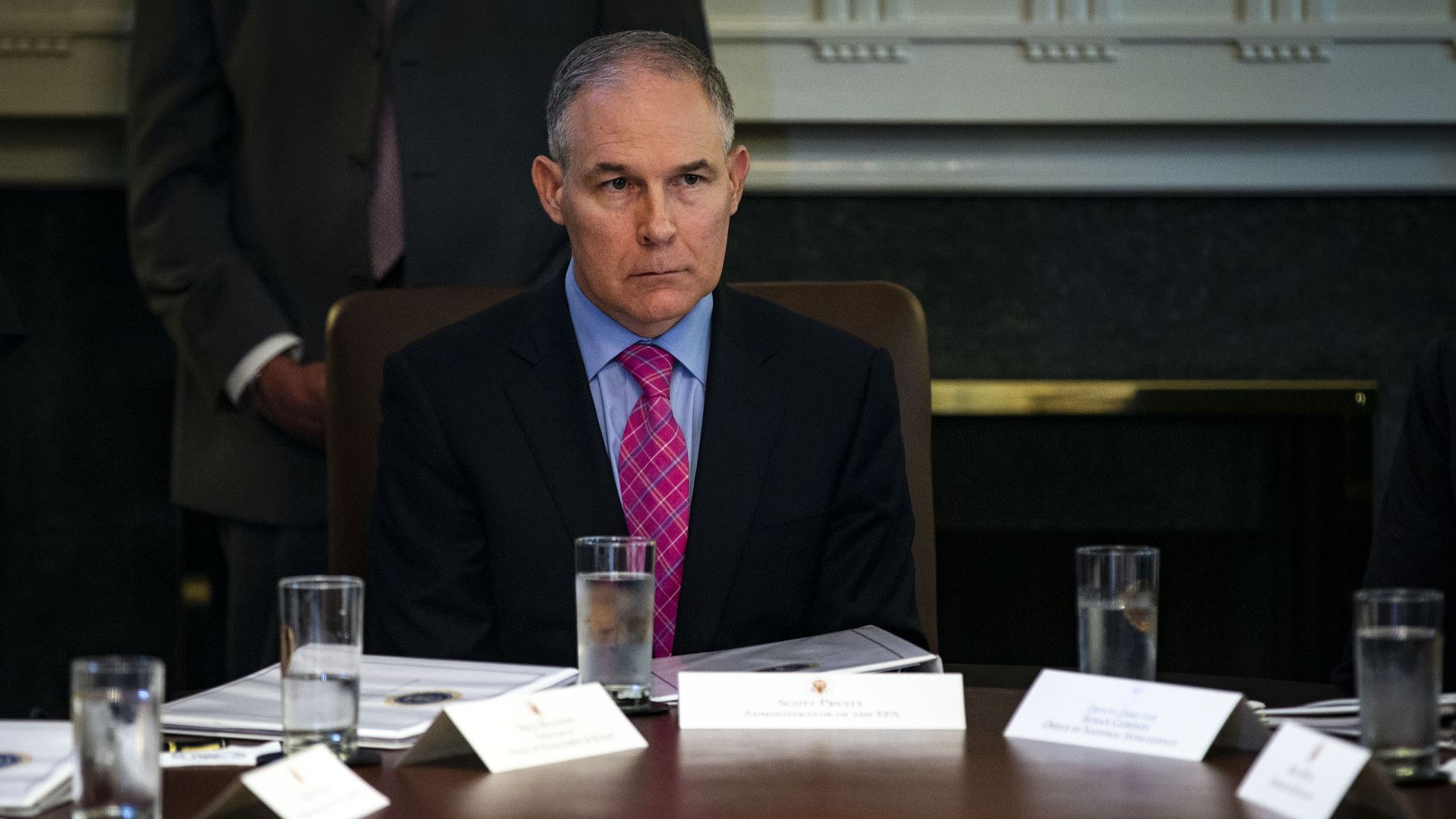Updated Jun 5, 2018 - Energy & Climate
Expert VoicesAutomakers struggle to head off the California–EPA legal battle
Add Axios as your preferred source to
see more of our stories on Google.

EPA Administrator Scott Pruitt during a Cabinet meeting on May 9, 2018, at the White House. Photo: Al Drago-Pool via Getty Images
